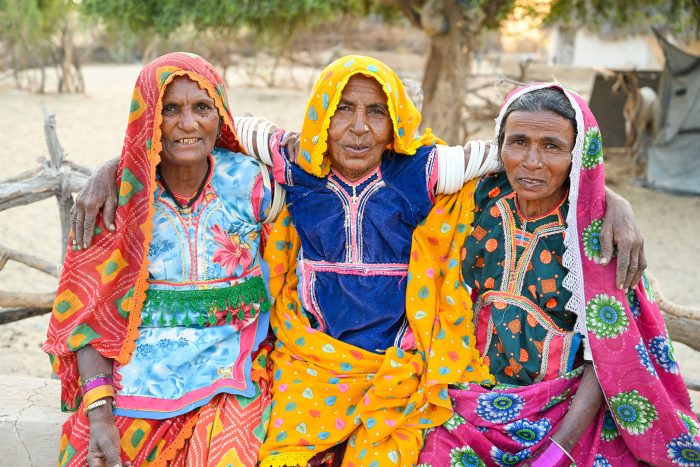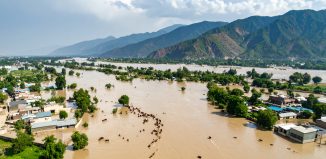Moolo: man of the house
If the humanitarian food aid programme1 of CWSA favoured someone at just the right moment in their lives, it was old Moolo and his wife Babbri. In April 2022, shortly after this family had received the first aid package, Moolo had complained of failing eyes. But he and indeed others too thought it was only the usual age-related problem. Sadly, it was worse than that.
Back then, Moolo had suffered a setback because of the failure of the summer crop of 2021. The loan he and his son Chandan had got for agricultural input was lost and they were under debt. To make matters worse, in the absence of medication, Chandan’s epileptic fits got more frequent. But with food on loan, there was no cash for health care.
Then came the CWSA aid and with food taken care of, the old couple were able to provide the much needed daily dose of medication to their son. However, even as the young man’s health improved, old Moolo’s eyes deteriorated. With that, his speech was becoming increasingly unintelligible and his mind clearly slowing down.
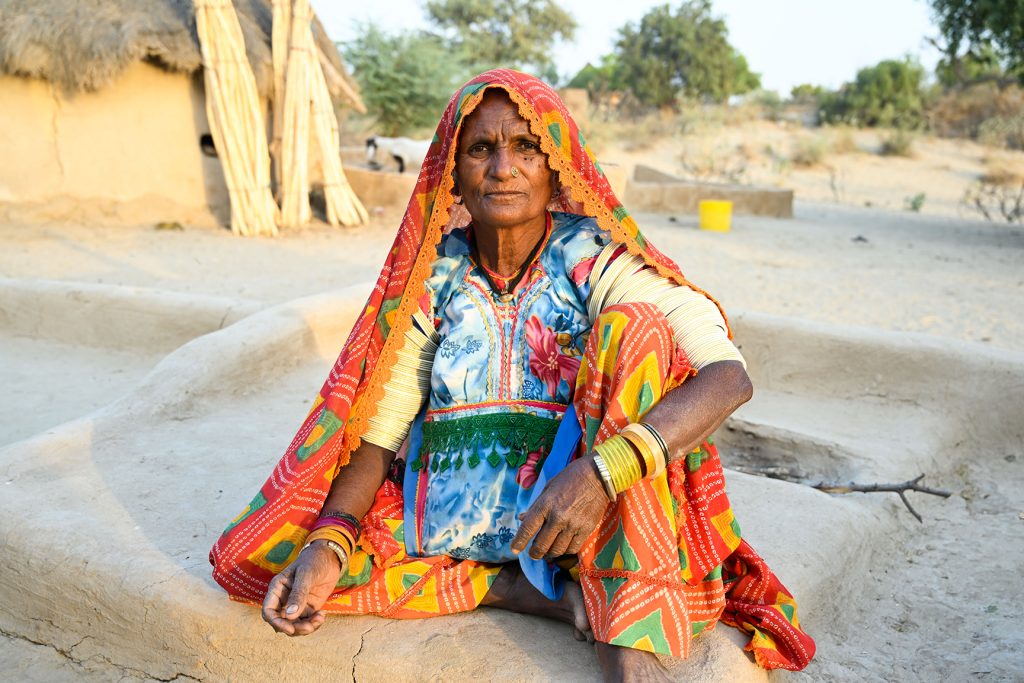
A difficult life of poverty and privation had taken its toll for though he was barely into his seventies, Moolo was completely spent.
The idea of the little store he and Babbri had planned to open from the saving they would make because of the food aid, began to recede into the distance. Why, how was Moolo, now unable to go about unaided, to manage the store? Ever more difficult, how was he to go into town unattended to purchase supplies needed to keep the store going?
His wife Babbri, though just a few years younger but much more spry, became the person of the hour. She went ahead with the opening of the store which was nothing more than a variety of children’s snacks, a few packets of condiments and the unfailingly ubiquitous packets of cigarettes.
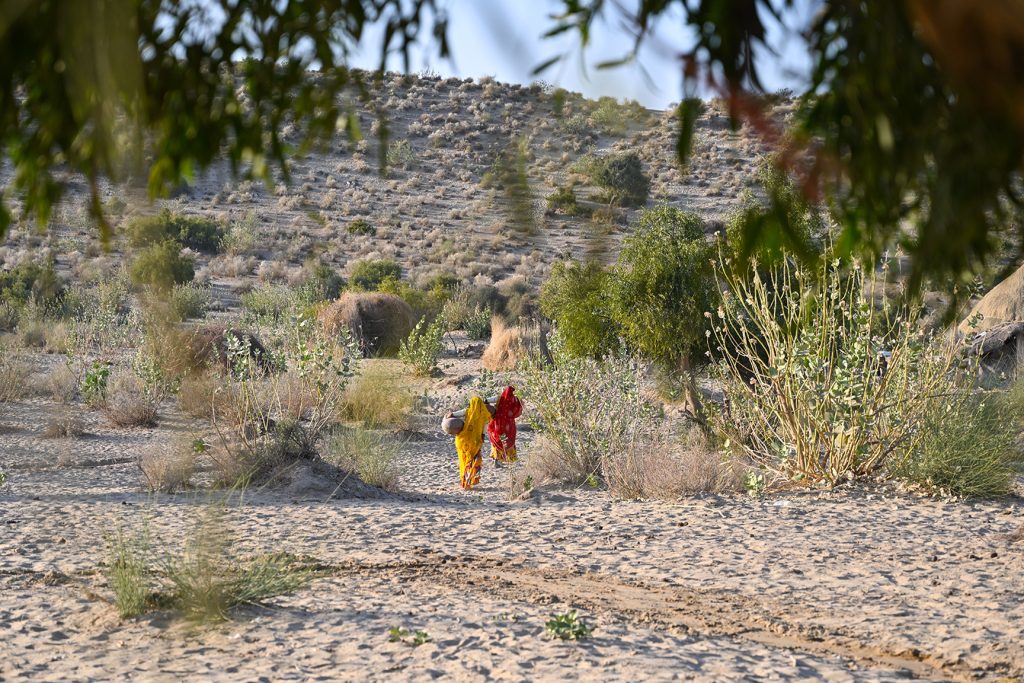
In early February 2023, just months after the last of the food packages had been received and consumed, Moolo was reduced to just a presence around the house: his eyes had finally given way and people around him were only unrecognisable shadows; only light and darkness were still clearly discernible. But the little store he had dreamed of was functioning out of the tin trunk and children of the village were frequently in and out of the compound picking up things against cash.
The question then was how was he managing the store with his disability? But before Moolo could respond, Babbri spoke up.
“He cannot do it now. I run the store and I net a daily profit of PKR 300 (Approx. USD 1),” she said. “Nobody gets credit from my store,” she added with a grin.
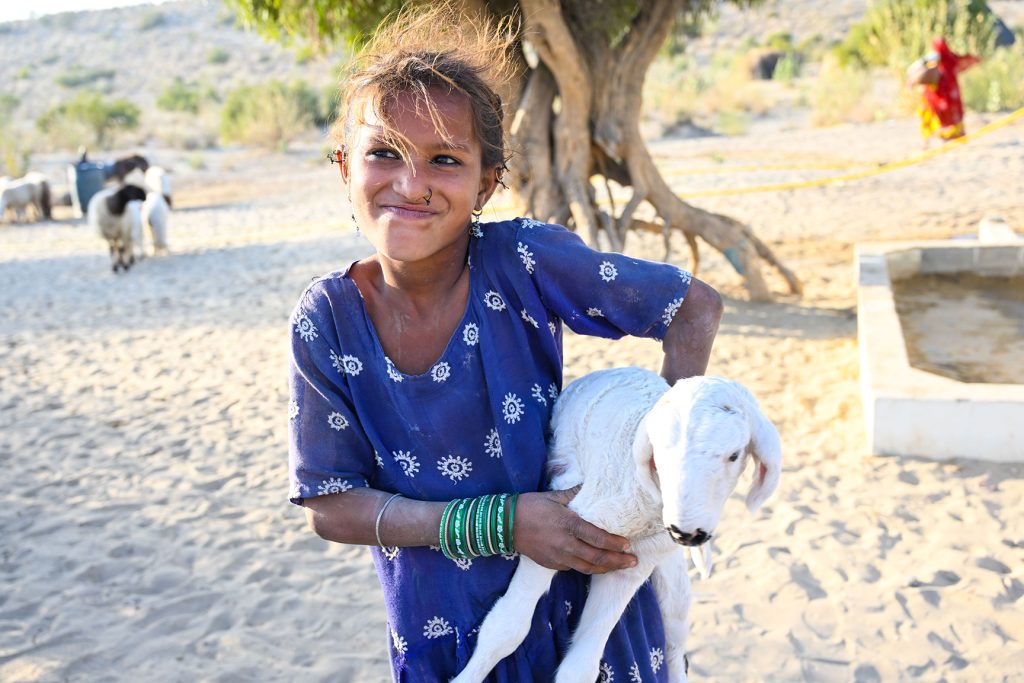
She related that the store was started shortly before the deluge of July 2022 with an investment of PKR 1000 (Approx. USD 3). In February, Babbri had stocks of PKR 3000 with PKR 4000 (Approx. USD 14) in hand to replenish her store. She was due to visit town with her cash to purchase supplies as she had been doing over the past seven months. And she was doing it all by herself. In effect, she was now the man of the house.
Asked how the food aid helped her and her family she was unequivocal: “It is because of this aid that we are not under debt. The little field we had planted as sharecroppers last summer, sprouted well enough. But with two straight months without a single day of sunshine and incessant rain, the crop withered. We were going to be without food and would have been forced to borrow money to keep body and soul together. Or we could have sold our goats to pay for food. But we are not under debt and we still have our goats!”
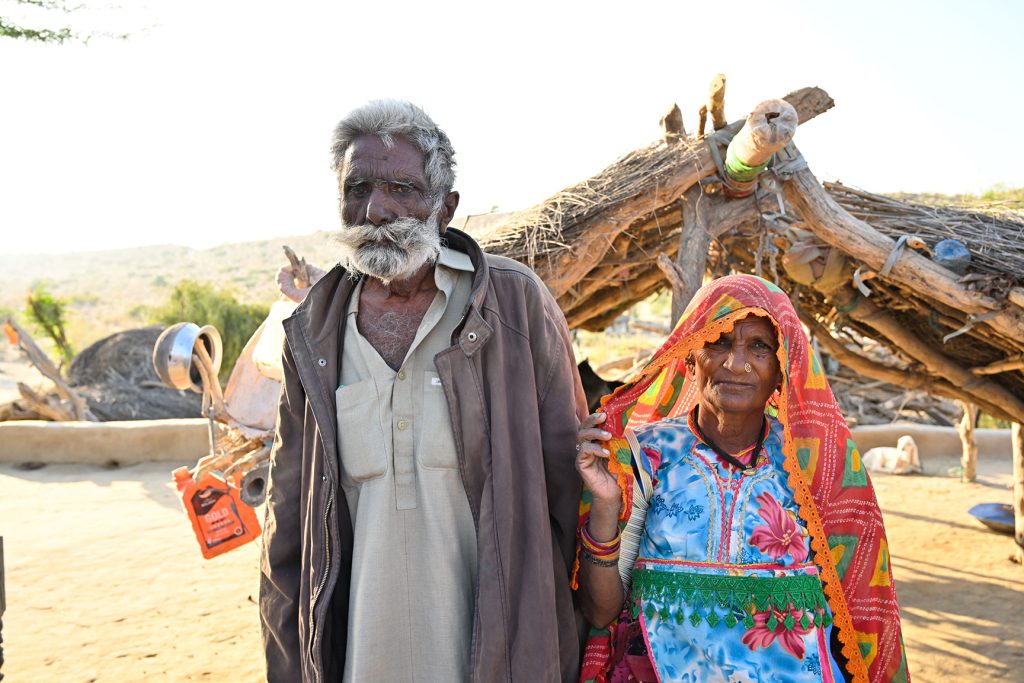
She related that three goats with three kids was a right little fortune in this Bheel village of poor folks. That means the family had their own milk for tea. And there was a time before 2022 when in years of poor harvest they would have only black tea.
The wheat harvest in ‘Sindh’, as the people of Thar differentiate the fertile canal-fed area from their rain-dependent desert, was drawing near, said Babbri. She and Moolo together with their two sons had migrated every March to participate in the harvest and returned with some 500 kilograms of wheat as their wages. This lasted them some four months until the millet and guar harvest was brought in.
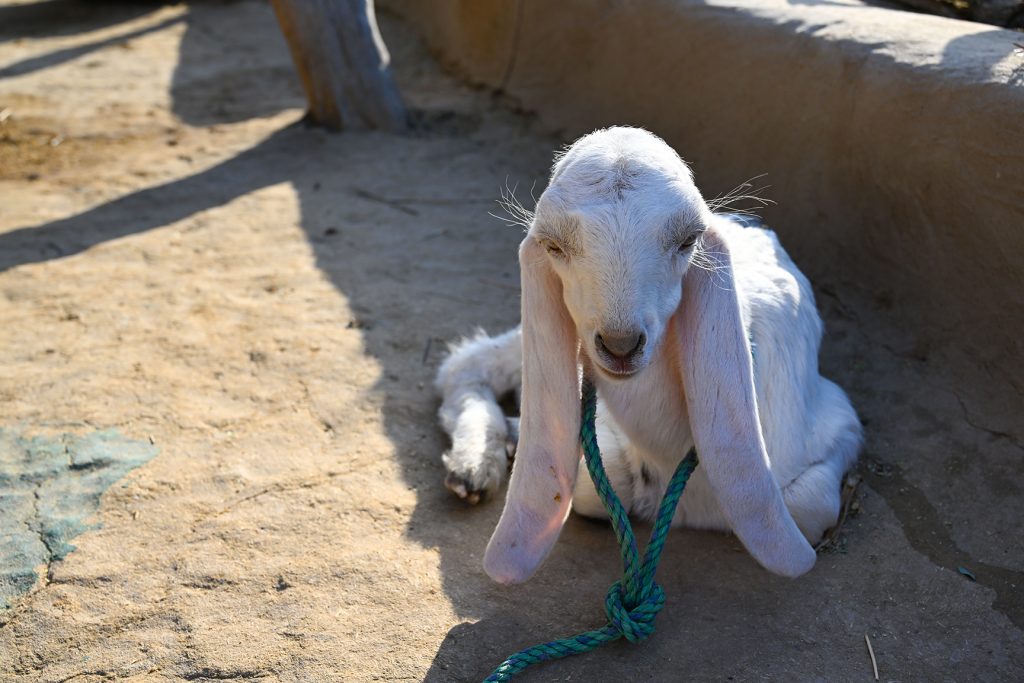
But with Moolo’s deteriorating eyes and Chandan’s epilepsy, only Babbri and her younger son participated in the harvest in 2022. Now because Babbri will be minding the store, the responsibility of bringing home the wheat rested upon Chandan and his wife. They would be leaving in early March to be away for four or five weeks. If they work hard enough and Chandan takes his medication on time, they will bring home 400 kilograms of grain. The younger son who works on road construction sites, will remain back so that his daily wages provide the much needed cash to Babbri and the invalid Moolo.
But if Babbri were to also migrate to participate in the wheat harvest, there would be more than the anticipated wages.
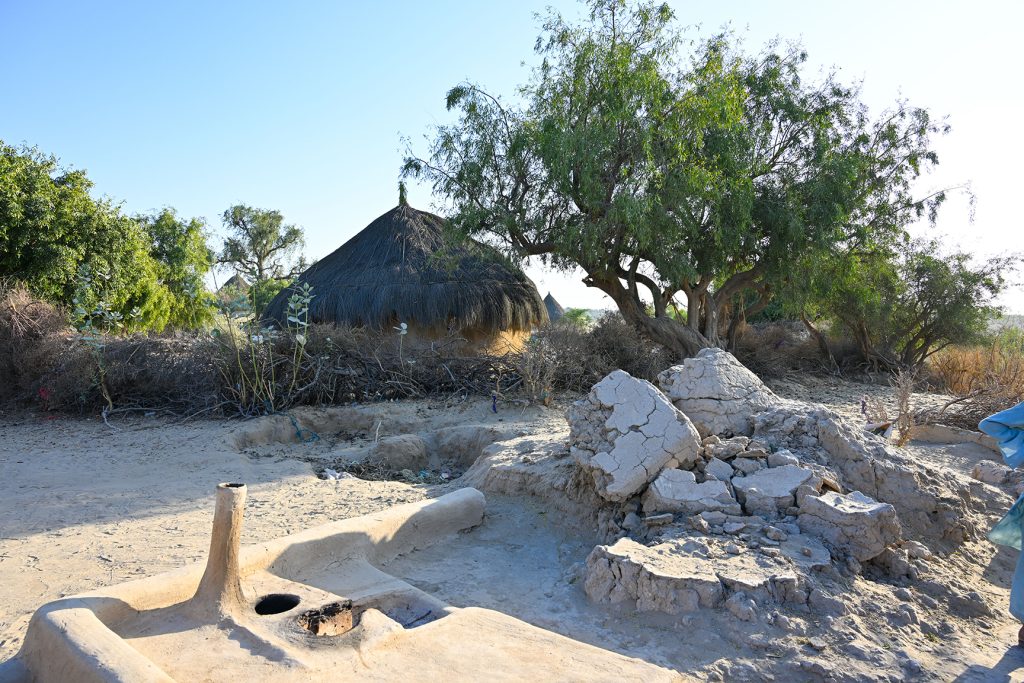
“I cannot leave Moolo alone in his condition,” said the spirited woman. “I have to cook for him and look after his other needs. And then who will tend to the shop and purchase supplies?”
Ever mindful of her responsibility, Babbri pointed out that Chandan will be sent away with six weeks’ worth of his epilepsy medication. And that would cost about PKR 1000. Before the food aid, Chandan had suffered and with him the whole family because there had never been enough cash to provide the daily dose.
As for the future, Babbri was very clear in her mind. “If I have some more money, I’ll invest it in our store. But for the time being I am very satisfied with the way it is going.”
- Humanitarian, Early Recovery and Development (HERD) program





